We all know the daily coffee ritual—scoop, pour, stir, and sip. For many, it’s not complete without a splash of cream or a spoonful of sugar. But while those old-school add-ins might offer a quick hit of comfort, they’re also adding hidden calories, spiking your blood sugar, and masking the true flavor of your brew. If your morning cup feels more like a dessert than a drink, it might be time to rethink what you’re putting into it.
The good news? There’s an entire world of smarter, tastier, and even healthier ways to sweeten your coffee—without relying on processed sugar or artificial creamers. Whether you’re cutting back on added sugars, managing your energy crashes, or simply craving something new, these 14 alternatives will completely upgrade your coffee game. From nature’s golden nectar to plant-based powerhouses, each option brings something unique to the mug.
And don’t worry, this isn’t a lecture in disguise. We’re not here to ruin your favorite ritual—we’re here to enhance it. Whether you’re a cold brew connoisseur, a French press fanatic, or just someone who likes a reliable drip with breakfast, these alternatives are easy to try, surprisingly delicious, and might just change the way you think about coffee forever. So put down the sugar spoon and step away from the creamer. A better brew is just a stir away—and we’ve got 14 sweet ideas to prove it.
1. Maple Syrup’s Woodland Charm
Straight from the forests of North America, pure maple syrup brings complex caramel notes and subtle hints of vanilla to your coffee. Unlike artificial syrups, real maple syrup contains minerals like manganese, zinc, and potassium.
The amber-colored elixir dissolves instantly in hot coffee, creating a harmonious blend without overpowering the coffee’s natural character.
Grade B syrup offers the strongest maple flavor for those who want their coffee to whisper of woodland mornings. Farmers collect approximately 40 gallons of sap to produce just one gallon of this liquid treasure.
2. Date Syrup’s Ancient Sweetness
Treasured since biblical times, date syrup brings deep caramel notes and subtle hints of chocolate to your morning brew. Unlike refined sugar, this thick, molasses-like sweetener retains the fruit’s fiber, potassium, magnesium, and antioxidants.
Making your own is surprisingly simple—just simmer pitted dates in water until soft, then blend into a smooth paste. A small spoonful transforms ordinary coffee into something reminiscent of a sophisticated caramel macchiato without artificial ingredients.
Middle Eastern cultures have used dates to sweeten foods for thousands of years, considering them both medicine and dessert.
3. Agave’s Desert-Born Sweetness
Harvested from the blue agave plant (yes, the same one used for tequila!), agave syrup dissolves effortlessly in coffee, even iced varieties. Its neutral flavor lets your coffee’s character shine through while adding just the right touch of sweetness.
The magic of agave lies in its glycemic properties. With a lower glycemic index than regular sugar, it won’t cause the dramatic blood sugar spikes that leave you crashing mid-morning.
Its concentrated sweetness means you need less—about two-thirds the amount of sugar. Ancient Aztecs considered the agave plant sacred, using its nectar for both food and medicine.
4. Honey’s Natural Glow
Raw honey transforms your morning coffee into liquid gold. Unlike processed sugar, honey contains enzymes, antioxidants, and antimicrobial compounds that support your immune system while satisfying your sweet tooth.
Each variety brings its own personality—light clover honey offers subtle sweetness, while darker buckwheat honey delivers rich, molasses-like notes. Just remember that honey is still a sugar, so a teaspoon is usually plenty.
Pro tip: Add honey to coffee that’s slightly cooled (not piping hot) to preserve its beneficial enzymes and complex flavors.
5. Coconut Sugar’s Tropical Touch
Harvested from coconut palm blossoms, this unrefined sweetener brings a subtle caramel flavor that perfectly complements coffee’s natural bitterness. Unlike the stark sweetness of white sugar, coconut sugar adds complexity with hints of butterscotch and toasted notes.
Health-conscious coffee drinkers appreciate its lower glycemic index and the presence of inulin—a type of dietary fiber that supports gut health.
The granules dissolve easily, creating a smooth integration with your brew. Coconut sugar production is environmentally friendly too, as coconut palms require less water and produce more sugar per acre than sugar cane.
6. Blackstrap Molasses’ Bold Character
A spoonful of blackstrap molasses turns your coffee into a nutritional powerhouse. This thick, dark syrup is what remains after sugar cane juice has been boiled three times to extract sugar crystals, concentrating minerals like iron, calcium, and magnesium in the process.
Its robust, slightly bitter flavor creates a fascinating partnership with coffee—almost like a sophisticated adult dessert in liquid form. Coffee lovers with a taste for complexity often find themselves addicted to this unconventional pairing.
During World War II, blackstrap molasses became a popular coffee sweetener when sugar was rationed, leading many to discover its unique charm.
7. Stevia’s Zero-Calorie Magic
Extracted from the leaves of the Stevia rebaudiana plant, this natural sweetener packs an impressive punch—it’s up to 300 times sweeter than sugar without adding a single calorie. The tiny amount needed means your coffee maintains its complex flavor profile while gaining just the right touch of sweetness.
Look for pure stevia without fillers for the cleanest taste. Some find that stevia has a slight licorice-like aftertaste, so start with just a drop or two in your coffee.
Indigenous Guaraní people of South America have used stevia leaves to sweeten beverages for centuries, calling it “ka’a he’ê” which means “sweet herb.”
8. Monk Fruit’s Ancient Wisdom
Named after the Buddhist monks who first cultivated it centuries ago, monk fruit extract offers intense sweetness without calories or blood sugar impact. The sweetness comes from unique antioxidants called mogrosides, which can be 200-300 times sweeter than sugar.
Unlike some zero-calorie sweeteners, monk fruit has no bitter aftertaste when added to coffee. Its clean, pure sweetness enhances coffee’s natural flavor without masking the subtle notes you love.
This small green melon native to southern China was traditionally dried and used in healing teas before becoming popular as a modern sweetener.
9. Erythritol’s Sugar-Like Simplicity
Erythritol looks and tastes remarkably like sugar but contains just 6% of the calories. This sugar alcohol occurs naturally in fruits and fermented foods, though commercial versions are typically made through fermenting corn or wheat starch.
Coffee drinkers with a sweet tooth appreciate how erythritol provides familiar sweetness without the guilt or blood sugar spikes. Unlike other sugar alcohols, it’s largely absorbed before reaching the colon, meaning it rarely causes digestive discomfort.
Measure it just like sugar in your coffee—a teaspoon for teaspoon replacement that dissolves completely, leaving no unusual aftertaste.
10. Cinnamon’s Warming Embrace
Sprinkle ground cinnamon into your coffee grounds before brewing for a naturally sweet flavor enhancement without adding any sugar at all. This ancient spice tricks your taste buds into perceiving sweetness while actually helping regulate blood sugar levels—a remarkable double benefit.
Ceylon cinnamon (the “true” cinnamon) offers a delicate, complex flavor perfect for coffee. Its warming qualities make it especially welcome in morning brews during colder months.
Beyond taste, cinnamon brings powerful antioxidants to your cup, making that morning ritual not just delicious but actively beneficial for your health.
11. Vanilla Extract’s Aromatic Allure
A few drops of pure vanilla extract transform your coffee into a bakery-scented delight without adding sugar. Real vanilla contains hundreds of flavor compounds that create the illusion of sweetness while actually enhancing coffee’s natural flavors.
Look for pure vanilla extract (not imitation) for the most authentic experience. Madagascar, Tahitian, and Mexican varieties each bring their own unique character—from floral to woody to spicy notes.
For an extra-special treat, split a vanilla bean and drop it into your coffee grounds before brewing. The beans themselves can be dried afterward and added to your sugar jar to create vanilla-infused sugar.
12. Cocoa Powder’s Rich Indulgence
Unsweetened cocoa powder transforms ordinary coffee into a mocha-like experience without added sugar. The rich chocolate flavor creates perceived sweetness while actually adding beneficial flavonoids and antioxidants to your morning ritual.
For the smoothest integration, mix cocoa powder with a small amount of hot coffee first to create a paste, then stir into your full cup. Dutch-processed cocoa offers a smoother, less acidic flavor, while natural cocoa brings brighter, fruitier notes.
Archaeological evidence suggests humans have been consuming cocoa for over 5,000 years, originally as a bitter, ceremonial drink—much closer to our modern coffee than today’s sweet chocolate.
13. Oat Milk’s Creamy Comfort
Baristas have fallen in love with oat milk for good reason—it creates a remarkably creamy coffee without dairy or added sweeteners. The natural enzymes in oats break down complex carbohydrates into simple sugars during production, creating subtle sweetness without any sugar being added.
Oat milk’s neutral flavor profile complements coffee rather than competing with it. The high protein content creates that coveted microfoam that makes lattes so satisfying.
Look for barista-specific versions designed to steam well and not separate when heated. Many brands are fortified with calcium and vitamins D, B12, and A, making your coffee break nutritionally beneficial.
14. Coconut Cream’s Silky Luxury
The thick, rich cream that rises to the top of coconut milk creates a luxurious coffee experience that’s naturally sweet without added sugar. Unlike dairy cream, coconut cream contains medium-chain triglycerides (MCTs)—fats that your body can use for quick energy rather than storing.
A spoonful transforms your coffee into a tropical treat with subtle sweetness and a silky mouthfeel. The plant-based fat helps slow caffeine absorption, potentially providing a more sustained energy release throughout your morning.
For the freshest flavor, refrigerate a can of full-fat coconut milk overnight, then scoop the solidified cream from the top.
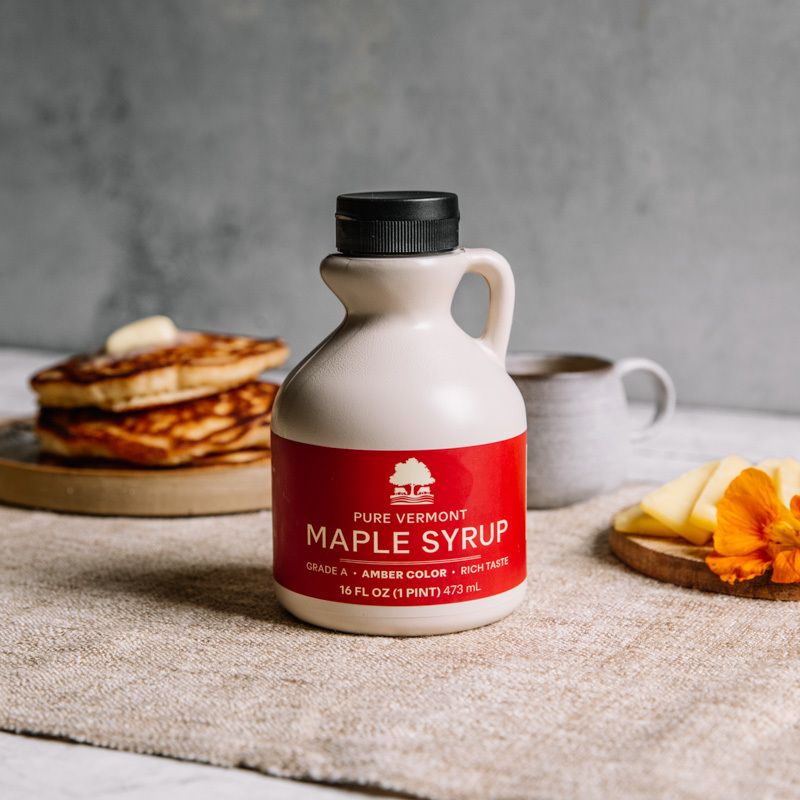
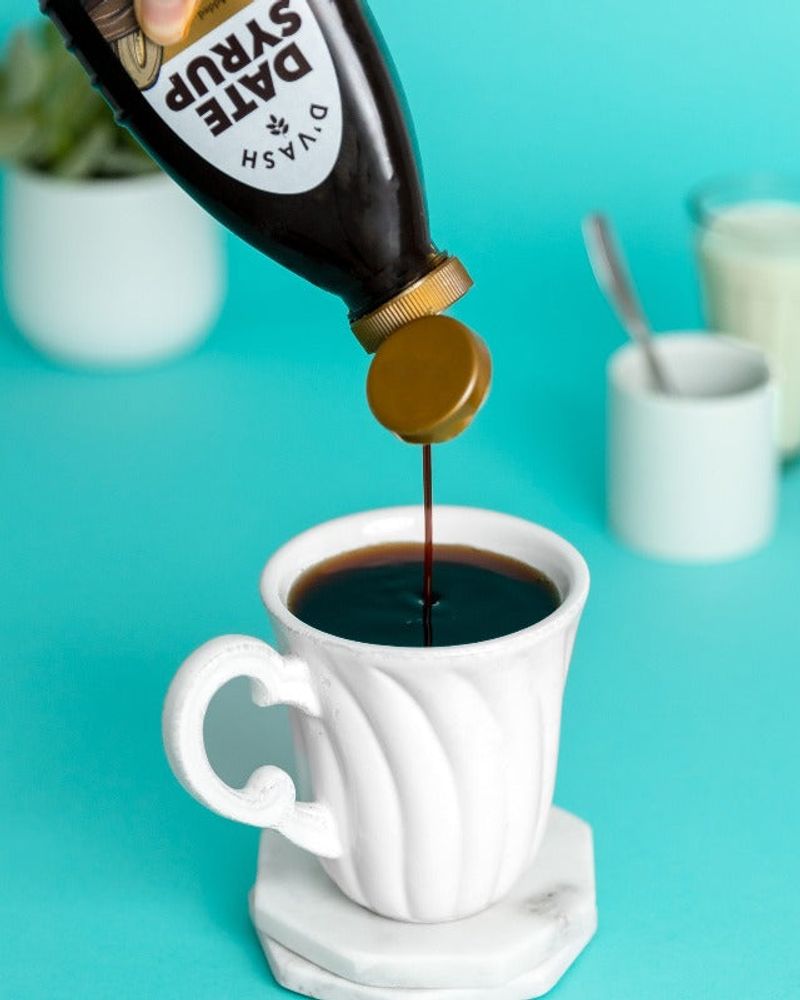
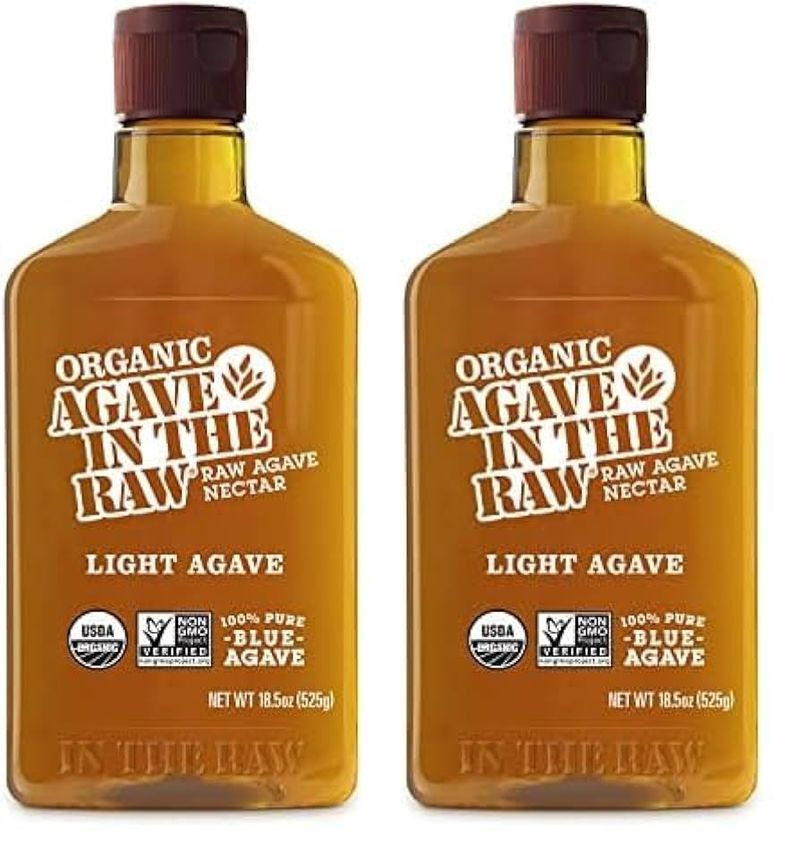
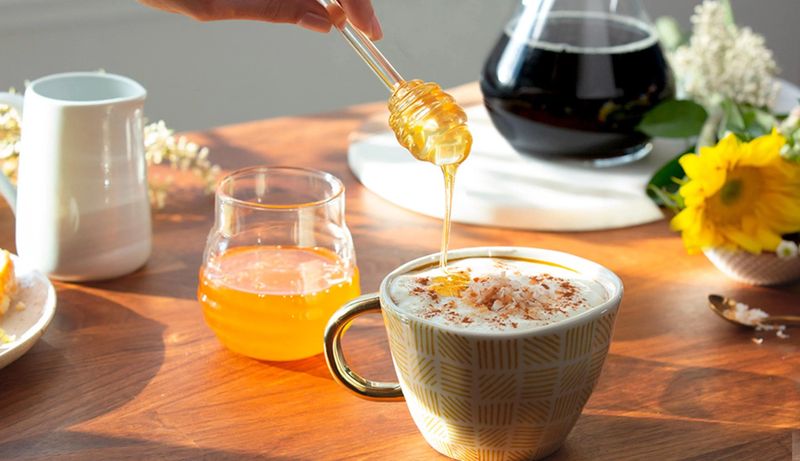
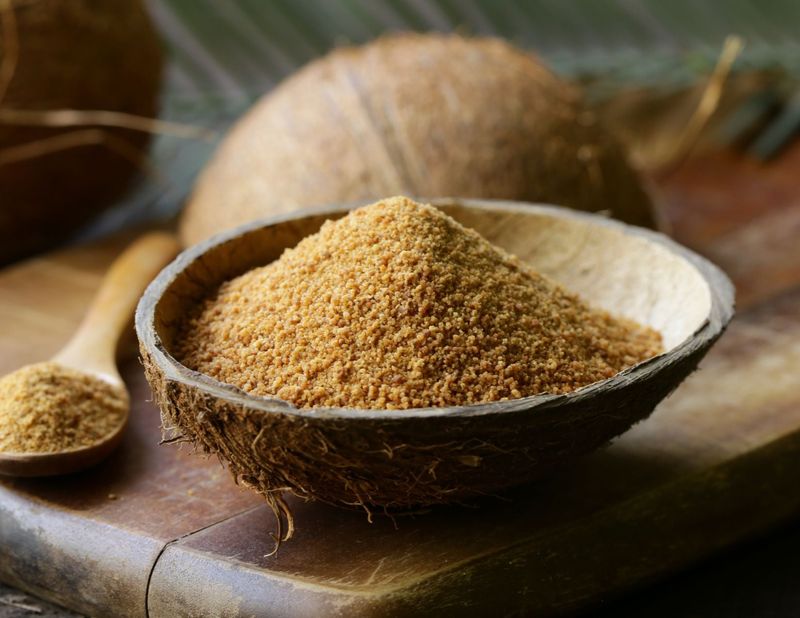
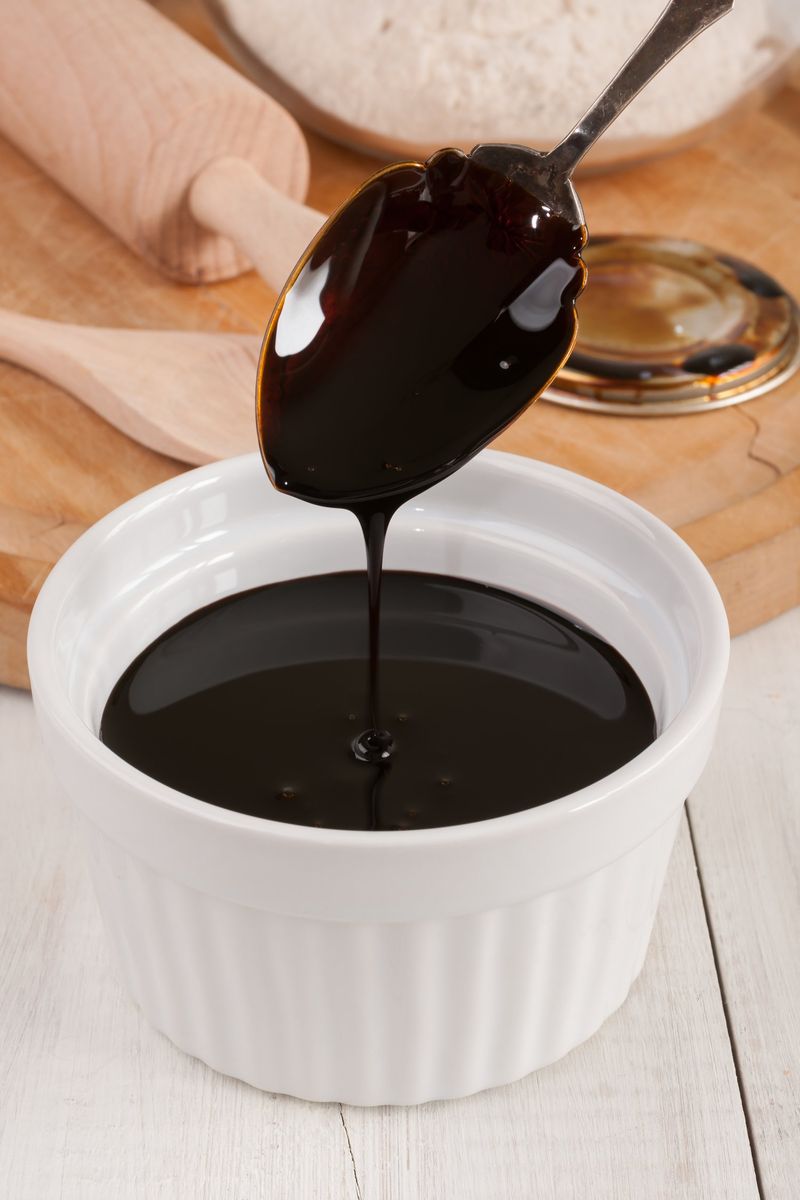
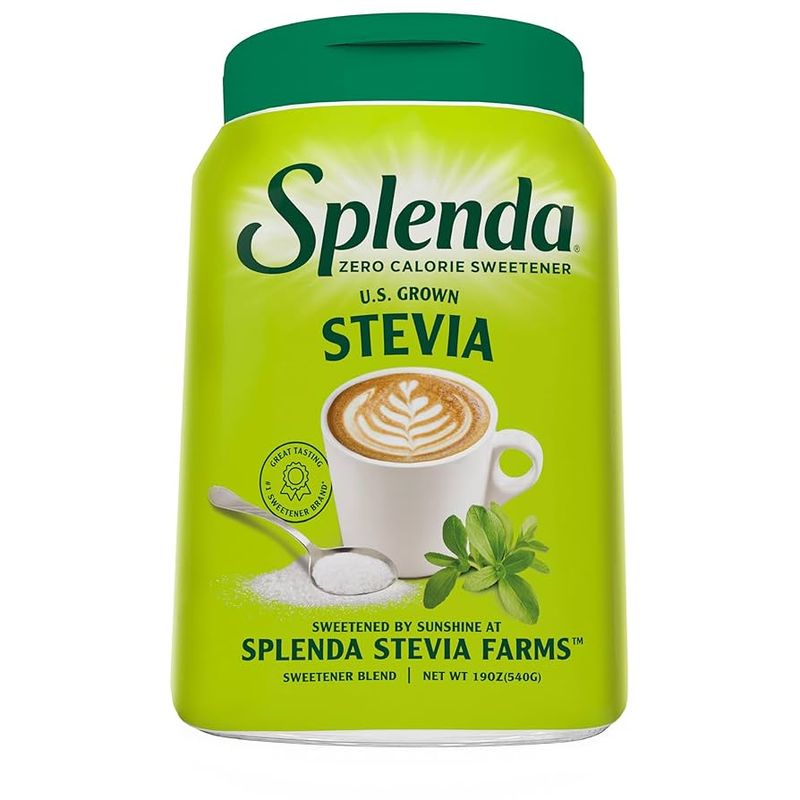

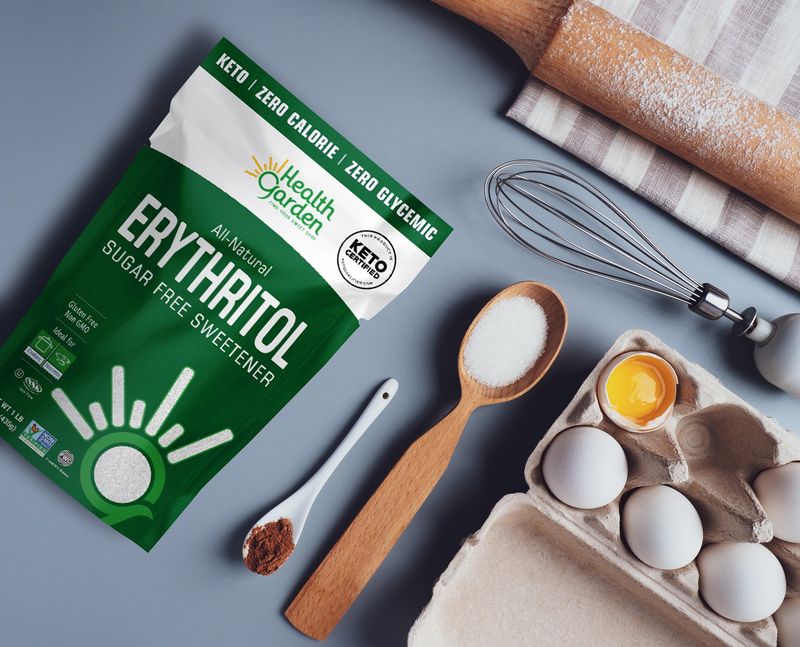
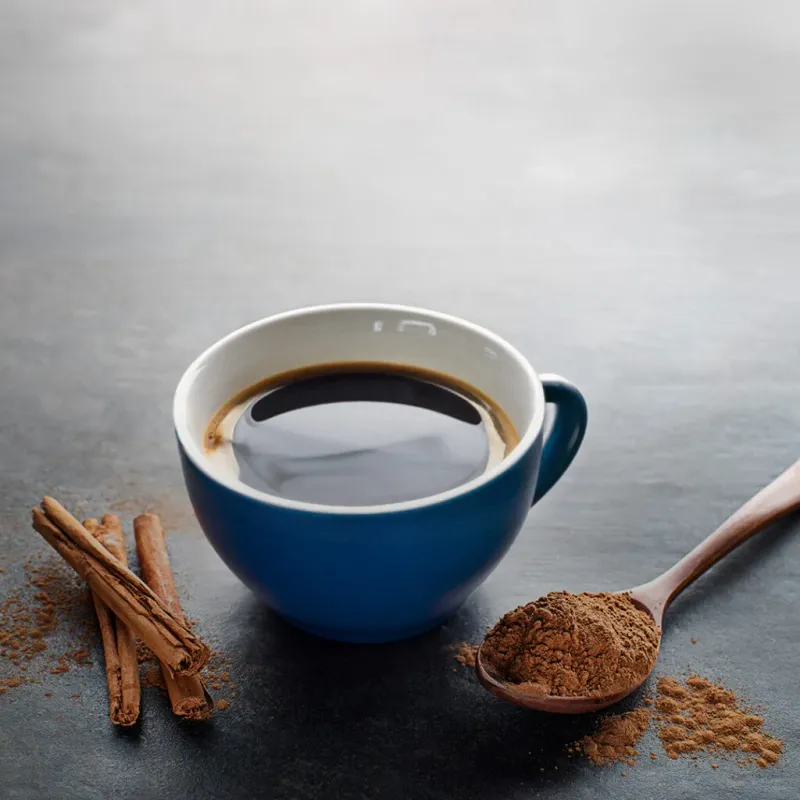
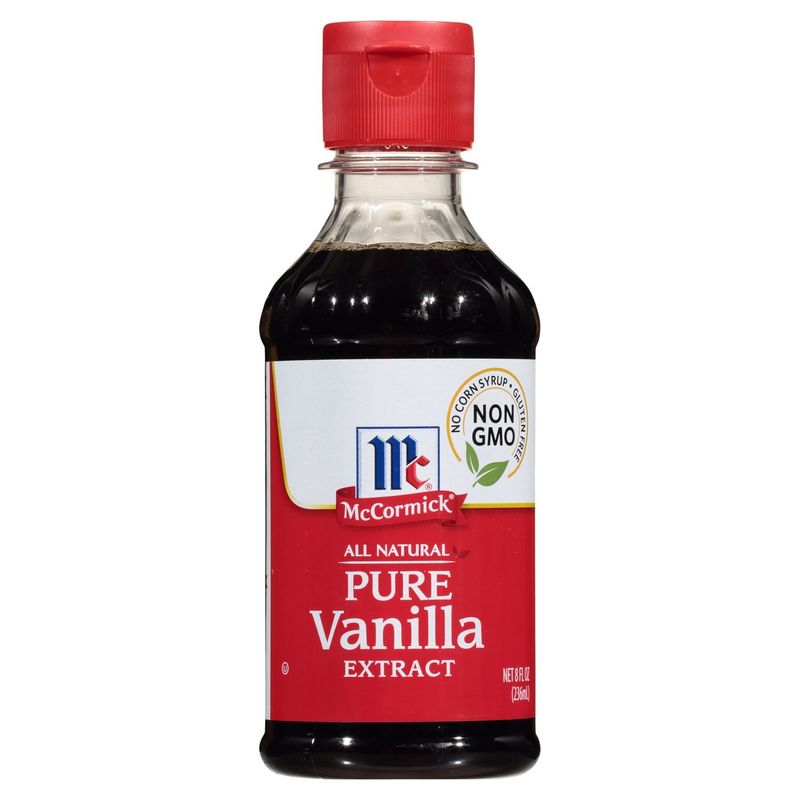
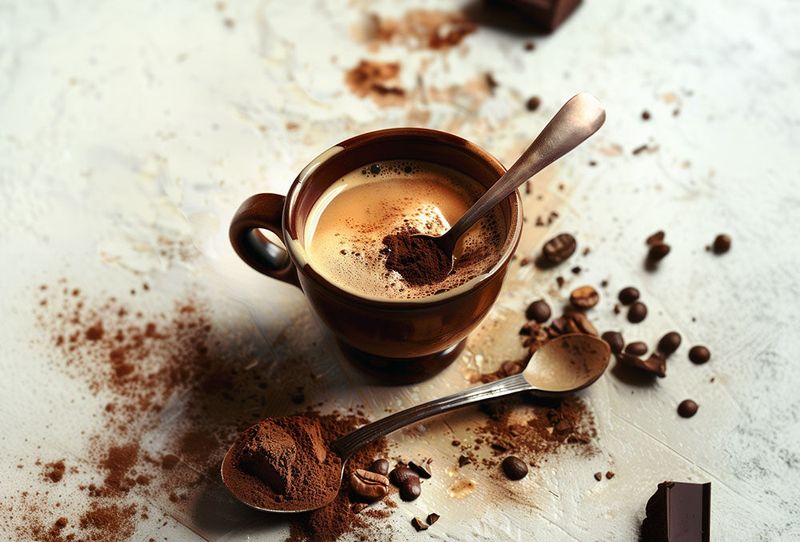
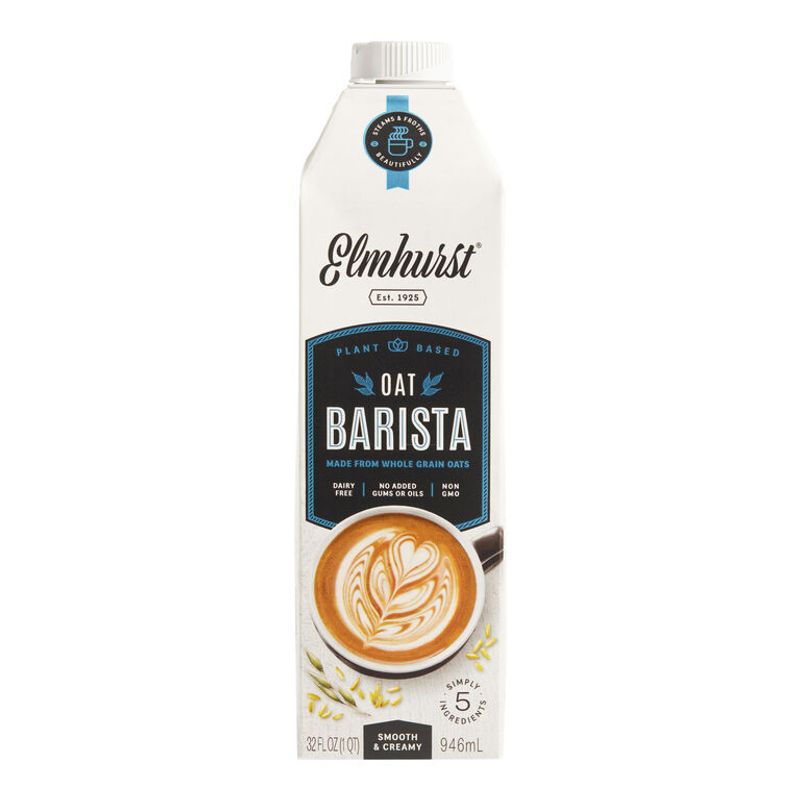
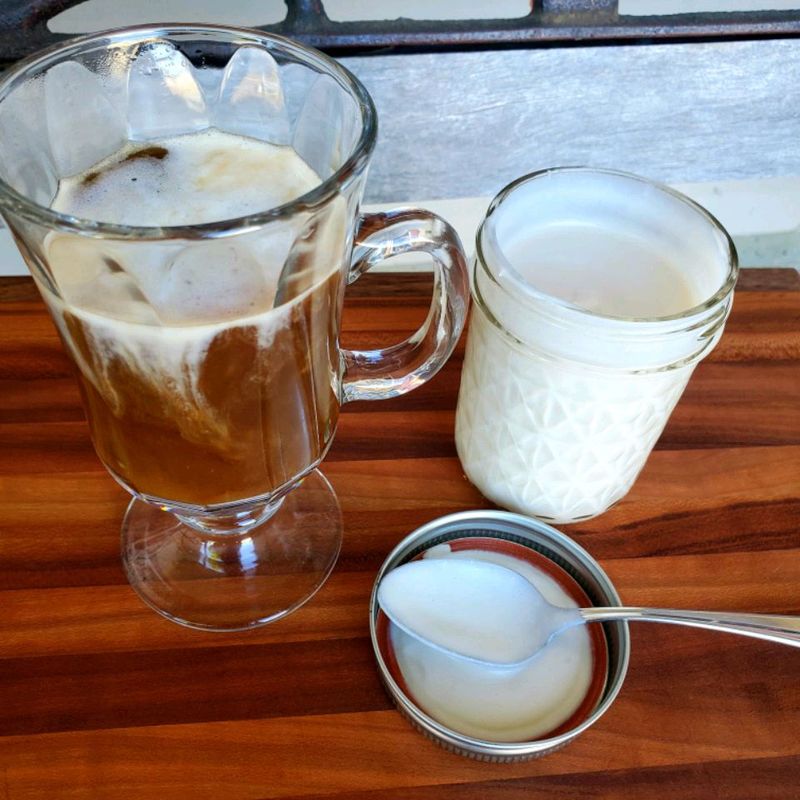
Leave a comment